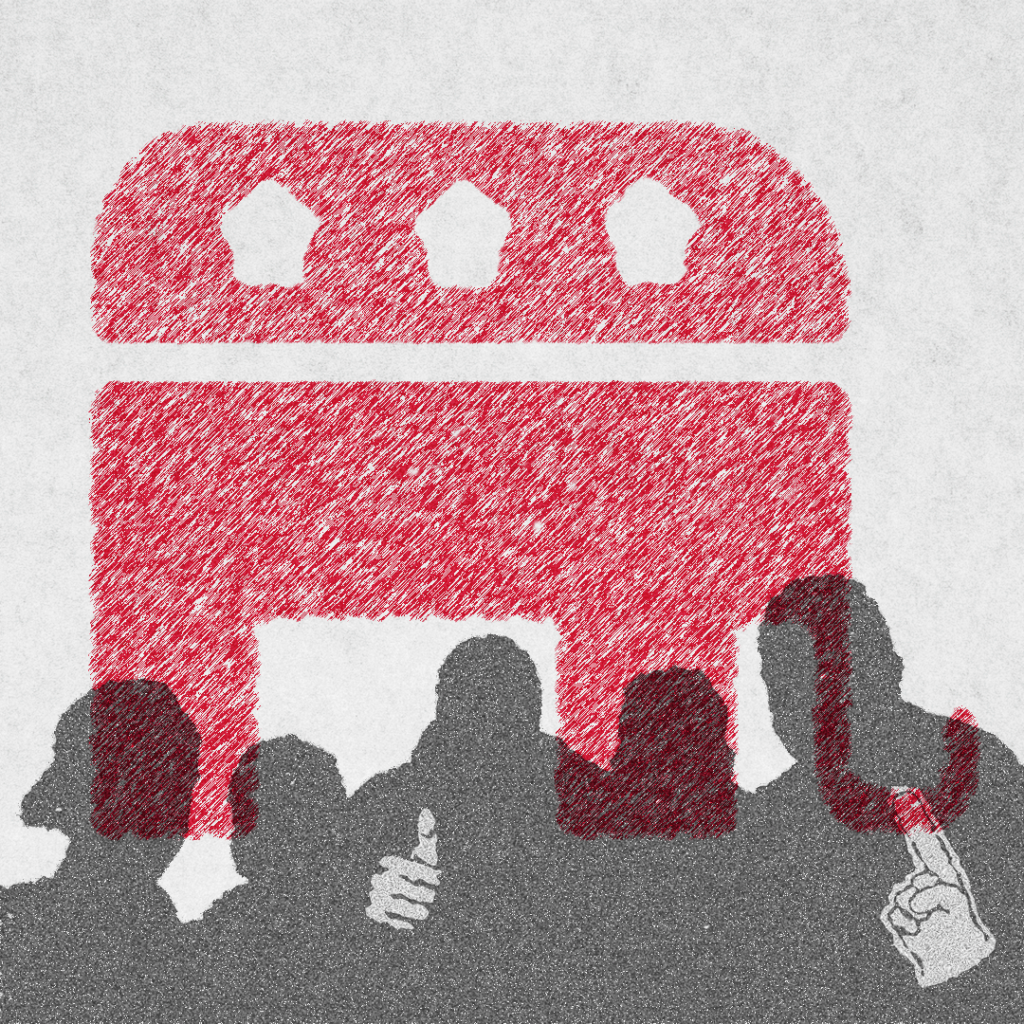Nearly 41 million members of Gen Z will be eligible to vote in the 2024 election. That is 16 million more eligible youth voters than in 2020, when Gen Z shattered the record for youth turnout and amassed the highest turnout since the minimum voting age was lowered to 18 in 1971.
The youth turnout in 2020 played a significant role in helping Biden pull ahead, particularly in the battleground states of Arizona, Georgia, Michigan, and Pennsylvania. Almost two-thirds of voters under the age of 30 voted for Biden in the last election, the culmination of a decades-long leftward trend that began in 2008 when Obama won a similar proportion of the youth vote. However, the growing number of young men who identify as Republican is threatening to upend the trend of young people voting blue in the past four elections.

As pollsters attempt to calculate the magnitude of the youth vote in this year’s presidential election, gender will hold more weight than any other variable. In June, The American Survey Center reported a notable conservative lean of young male voters, with more young men skewing right than in previous generations. One of their polls found that thirty-eight percent of men aged 18 to twenty-nine believe that “society is better off when men and women stick to the jobs and tasks they are naturally suited for,” a notably conservative view.
Social psychologists have observed this trend in the classroom, too. Jean Twenge, author of Generations, found that the number of twelfth-grade boys who identify as conservative has jumped nearly 20 points over the last two decades. Similarly, psychotherapist Thomas Kersting shared on Fox News that twelfth-grade boys are nearly twice as likely to call themselves conservative. Kersting attributes the shift to misandrist social messaging: “Twelfth-grade boys are kind of seeing through this. We’re creating this idea that if you’re a male, there’s something wrong with that and that you’re bad.”
One possible explanation for why young men may be shifting further to the right is a heightened need for security as gender roles and societal dynamics continue to transform. As the country’s social justice movement has altered the way we think about men—and how men think about themselves—it is not entirely surprising that men are still adjusting to this new normal. As liberal comedian Chelsea Handler likes to put it, men have been put on a “probation” of sorts. Although a reference to cancel culture, this comment rings true for men in school and workplaces. With phrases like “mansplaining” and “manspreading,” the men of today are often reduced to caricatures, even if accidentally so.
Living in a culture that is quick to point out their advantages, young men have an increasingly difficult time opening up about the challenges they face. The Republican party and Donald Trump have been quick to appeal to these wayward young men. Republican affiliation among white men aged 18 to 24 jumped from 28% in 2019 to 41% in 2023, according to a Harvard Youth Poll.
Studies on key voter issues segmented by gender support the idea that young men who participate in politics come in search of a social identity rather than policy. Unlike young women, who express vehement opinions on salient voter issues such as gun violence, affordability of healthcare, and inflation, young men display only mild interest in these issues.
A 2023 survey on key voter issues found that young men are far less likely than women to say any particular issue is personally important to them. When asked to rate the importance of 15 major issues, there was not a single issue that young men cared about significantly more than young women. For 11 out of 15 issues, women ranked the issues as of greater importance to them.
Despite young men’s political apathy, they are still showing up to vote in comparable numbers to their female counterparts. Is it possible that young women are simply more politically passionate after collectively experiencing the #MeToo Movement and the overturning of Roe v. Wade? Perhaps. A 2022 survey found that two-thirds of young women believe that what happens to women in the US will have a bearing on their own lives, referred to as “linked fate” in sociology.
The phenomenon of linked fate would help to explain why more Gen Z women are left-leaning, but the political apathy observed in Gen Z males offers little explanation as to why more young men are identifying as conservative and affiliating with the GOP despite a remarkable detachment from key policy issues.
What, then, is bringing Gen Z males to the polls? Surveys suggest it is not the candidates. If the election ends up a rematch between Trump and President Biden, Gen Z’s voter turnout is predicted to be lower compared to 2020. According to a Harvard Youth poll, the number of younger Americans aged 18 to 29 who say they’ll definitely vote in the 2024 election has dropped from 57 percent to 49 percent since fall 2019. That drop-off is more significant for Black and Hispanic Americans.
If it is unclear to pollsters what issues Gen Z men care about, it is likely unclear to front runners Trump and President Biden. Both are struggling to tap into the youth vote. Can they evolve to account for the Gen Z gender gap too?
Register to vote here!
https://www.vote411.org/register



